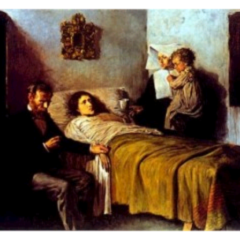“Person-centered medicine” represents a new epistemological orientation for medical science. The components of the paradigm derive firstly from an acknowledgment of the impact of Christianity on the History of medicine, secondly from kairological introspection, which, starting from phenomenological and anthropo-analytical premises, provides evidence of teleonomy in human nature, thirdly from the indeterminate relation between biological reactions and the quality of coping, the epistemological foundation of the interactivity shown by biological research, and finally from the emergence in the epistemological field of a new concept of health based on the quality of life and the individual person’s resources.
Person-centered medicine is a new medical concept based on the acknowledgment of the fact that valuing and giving value to human life from conception to natural death is the ultimate justification of medical knowledge. The individual human being can never be the tool of science or of economic or political interests, laws, ideologies, theories, or religious dogma.
The basis of this philosophy, of which I had the honor and the responsibility of being “maieuta”, rests on a theoretical synthesis between the quality of knowledge derived from experimental research and that derived from humanistic clinical research.
This approach has already been extensively evaluated in the postgraduate medical courses of Ambrosiana University in Milan and has been validated by the extraordinary improvements in the quality of the medical profession. The Manifesto represents the Epistemological program of the Ambrosiana University Milan Medical School, “Scuola Normale Superiore di Medicina”.
Person-centered medicine aims to modify the bio-molecular reductionist approach to medical science in favor of an integration that makes doctors, nurses, and patients true protagonists of the health scenario.
In science and education, “The person-centered paradigm” represents a challenge to develop research and education methods based not on conjectures but on interactionism and on the teleonomic theory, which is founded on the relativity of biological reactions to the quality of coping as has been confirmed by numerous experimental studies.
In the second millennium jubilee of the birth of Jesus Christ, we affirm our hope that “Person – centered medicine” may complement the values of Hyppocratic medicine by the concept of the sanctity of human life and the individual human being as God’s gift to the World, which through the dominion of Christ has constituted occidental culture.
THE MANIFESTO OF PERSON-CENTERED MEDICINE
adhesions to MANIFESTO : pcmmanifesto@scuolamedicamilano.it
Info for Medical Education in Person-Centered Medicine (International)
Proceedings of the International Congress: Medical Science and Health Paradigm Change
